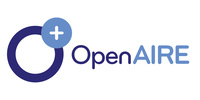Publication ethics and malpractice statement
The journal establishes ethical procedures throughout its editorial process, from submission and evaluation to publication, and does not tolerate deviations from academic conduct, whether by the Editorial Team or its Authors.
All Authors, Editors, and Reviewers are encouraged to be familiar with and adhere to the guidelines provided on this page at all stages of the publication process.
The journal may employ systems for detecting indications of plagiarism in submitted texts, such as Turnitin and IThenticate.
All cases involving suspicions of misconduct must be investigated by the journal with the highest standards of academic and ethical rigor to resolve all doubts. In this regard, there is a commitment to publishing corrections, clarifications, retractions, as well as notes of concern if necessary.
Authors, when submitting texts for evaluation, should always:
- Adhere to authorship attribution criteria, including only researchers involved in the study and not including as co-authors individuals who did not participate in the work.
- Cite and provide correct references for all data and interpretations of data from other publications.
- Disclose any conflicts of interest among all authors.
- Disclose all sources of funding.
- Submit texts for evaluation only if they have not been submitted to other publications, ensuring the accuracy and authenticity of the data.
- Make retractions or corrections of errors when necessary.
Reviewers, when receiving an invitation to evaluate any text, should commit to:
- Decline the invitation if there are any conflicts of interest.
- Conduct the evaluation themselves, adhering to the highest level of rigor.
- Accept invitations only when they are capable of completing the evaluation within the specified timeframe.
- Report any relevant references published that were not cited in the text.
- Maintain absolute confidentiality regarding the reviewed texts, refrain from discussing them with colleagues, and not use the information to their advantage until the article is published.
Editors should always:
- Ensure a peer review process characterized by impartiality and academic objectivity.
- Guarantee the anonymity of Reviewers in relation to Authors.
- Evaluate and investigate all cases and suspicions of misconduct and unethical behavior.
- Prevent financial interests from compromising ethical publication standards.
- Ensure that there is no plagiarism and that fraudulent data and results are not published.







